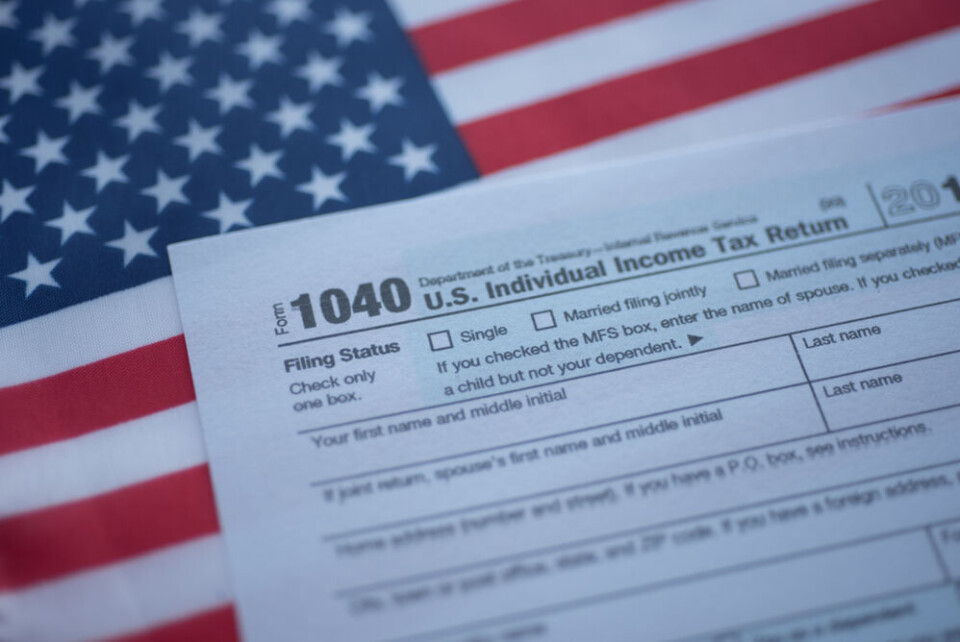-
How many Americans live in Paris - and where else are they choosing in France?
Over a quarter of all US nationals in France live in the capital city
-
How to check whether you will be fined for a speeding offence in France
Fines can be sent anytime after an incident
-
People in France snubbing US travel, report travel agents
The political context, weak euro against the dollar, and border issues have all been blamed
American expats in France: 5 tips for your first tax season
The rules require US citizens to file with the IRS, their state and the French authorities

US citizens have a tax obligation no matter where they live, with a complex system that varies from state to state. We look at five things to bear in mind when filing taxes as an American in France.
American citizens have to file taxes in the US if their income, including foreign income, exceeds certain thresholds - in addition to filing taxes in France
The US tax season runs from January 1 until April 15, however American citizens abroad are granted an automatic extension.
In 2024, this means you have until June 17 to file. You can also request an additional extension, which would make the final filing deadline October 16.
People earning less than $12,950 (for under 65s) or $14,700 (for over 65s) do not have to file. The taxable thresholds are available on the IRS website, here.
You can find out about declaring your income in France in our tax guide. New edition due in late March 2024.
Read more: US presidential primaries start in January: How to vote from France
1. Ask for help to file US taxes abroad
“In my experience, at least for their first year, Americans need to request the help of a professional because the taxes are complex,” said Benjamin Pik, a dual French and American accountant and head of Paris-based Pik Consulting.
A list of France-based tax preparers registered with the US’s Internal Revenue Service (IRS), including Mr Pik, can be found in this directory.
Select France from the drop down menu, click search, and you will get a full list of credentialed tax preparers in the country.
2. Use online software for your taxes
Several online services are available, such as MyExpatTaxes and H&R Block, which can guide you through the filing process remotely.
However, if your situation is more complex–with multiple streams of income, investment, or property ownership–you may benefit from personalised assistance.
3. Remember to declare state taxes
If you have a permanent address in a US state, lived there for part of the tax year or earned money from working there, you also have to file state taxes
The requirements vary by state, so check the specific rules for that state or take advice from a tax professional.
4. Claim US tax credits for your income in France
There are a number of mechanisms designed to prevent double taxation, including the Foreign Earned Income Exclusion (FEIE) and the Foreign Tax Credit (FTC).
- The FEIE allows US citizens living abroad to exclude foreign earnings from US taxation up to an amount that is adjusted annually for inflation ($126,500 in 2024). Eligible foreign earnings only include employment-based income, not pensions or investment-based earnings.
- The FTC allows US citizens living abroad to claim US tax credits equal in value to income taxes paid in another country.
In a country like France, with generally higher income tax rates than the US, this often means being able to claim enough US tax credits that you owe no tax.
A professional can help you decide if the FEIE or FTC better suits your situation, or what other mechanisms may help you.
5. Declare foreign bank accounts to US authorities
US citizens are obliged to report their foreign financial accounts and assets to the US government.
This obligation follows the FBAR (Foreign Bank Account Report) rule and the FATCA (Foreign Account Tax Compliance Act).
To file your FBAR, use form 114, which is due on the same day as your tax return, but sent to the Financial Crimes Enforcement Network (FINCEN) rather than the IRS.
It must be filed if the aggregate value of your foreign financial accounts exceeded $10,000 at any time during the year.
The FATCA Form 8938 has a higher threshold. This form is filed with your tax return and submitted to the IRS.
The threshold for filing starts at $200,000 for US expats and rises to $600,000, depending on your filing status.
Read more:
Two Americans moved to France 50 years apart - what has changed?
Your views on American tourist’s claim that France is ‘isolating’
























